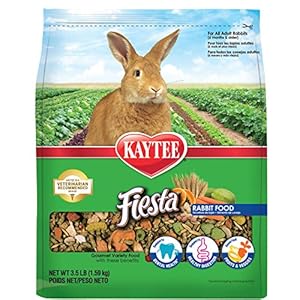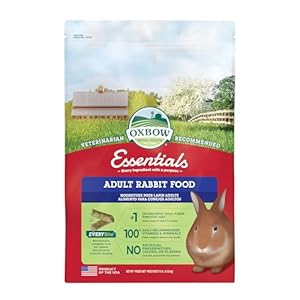Diane Whitmore Schanzenbach is an economist who has spent her total profession learning insurance policies meant to alleviate starvation and enhance the well being and diet of poor Individuals. Within the run-up to the 2018 Farm Bill, she was requested to testify in entrance of the Home Agriculture Committee at a listening to on the professionals and cons of proscribing the acquisition of soda and different unhealthy meals inside the Supplemental Vitamin Help Program (SNAP).
Based mostly on the physique of analysis she reviewed, which included her personal research, she summed up her thinking in the beginning. “I imagine that SNAP restrictions will likely be tough to construction in apply, will likely be inefficiently focused, and in lots of instances—akin to a proposed ban of the acquisition of soppy drinks or sweetened drinks—will likely be unlikely to vary consumption patterns,” she advised lawmakers. “There are higher coverage choices for selling wholesome consuming patterns, each for SNAP recipients and for all Individuals.”
On the time, Schanzenbach stated, her aunt was particularly happy with her look in entrance of Congress. After, she despatched Schanzenbach a be aware.
“She was like, ‘You have been nice, darling! However I feel you’re fully flawed.’”
Schanzenbach wasn’t shocked. Whereas it’s usually offered as a commonsense subject, the query of whether or not to limit what individuals can purchase with SNAP has impressed a long time of circuitous, heated debate and political maneuvering. Some argue that this system ought to stay a easy supply of grocery {dollars} for Individuals struggling to feed their households, whereas others say meals and drinks related to continual illness danger needs to be eradicated from acceptable SNAP purchases.
Wish to get a way of the problems? Right into a whirring blender, throw diet specialists attempting to parse restricted, inconsistent knowledge on what SNAP individuals truly purchase and their well being outcomes. Combine in some pseudo-experts peddling misinformation and unhealthy knowledge. Add politicians attempting to attain factors. Don’t neglect starvation teams that always see any restriction to SNAP advantages as an existential risk to this system or the highly effective soda and junk meals lobbyists fighting to guard company income.
All of those teams have been crashing into one another for years. Now, within the period of Make America Healthy Again, Republicans are turning the dial as much as 10.
In Congress, the place getting SNAP restrictions right into a farm invoice was seen as a political impossibility, that pondering is altering; now the thought comes up in listening to after listening to. Meaning there’s probability some language that implements nationwide restrictions or introduces a pilot program may very well be included, ought to a farm invoice move by way of Congress later this yr.
On the similar time, Republican legislators in more than a dozen states have launched payments to limit soda and unhealthy meals inside SNAP. If these payments succeed, states nonetheless want a waiver from the U.S. Division of Agriculture (USDA) to place the restrictions into place, and traditionally the USDA has rejected waiver requests underneath each Democrat and Republican administrations.
However Secretary of Agriculture Brooke Rollins is taking a unique tack: Inside her first week in workplace, she sent a letter to state governments outlining her guiding rules on the nation’s starvation packages. Second on her listing was a dedication to “help state innovation by way of approvals of waivers.” She additionally advised White House reporters she’s trying ahead to working with Secretary of Well being and Human Providers Robert F. Kennedy, Jr. to determine potential restrictions. So, state restrictions may turn into a actuality quickly.
All of that is taking place at a time when Republicans have proposed rolling again Biden-era updates to SNAP that would lead to as much as $230 billion cuts to advantages, shrinking how a lot people should spend on the retailer whereas food prices continue to rise. That strategy doesn’t sync up with the proof on how greatest to enhance diet, stated Schanzenbach, who’s now at Northwestern College’s Institute for Coverage Analysis. “Normally, when individuals have more cash to spend on meals, they purchase extra meals, and more healthy meals.”
One factor that everybody can agree on is that Individuals usually are not consuming properly, and that contributes to excessive charges of continual illness. Based on the Centers for Disease Control (CDC), about 42 p.c of American adults and 20 p.c of kids have weight problems. Greater than a 3rd of deaths annually are resulting from coronary heart assault or stroke.
Pricey Logistics?
Billionaire and former New York Metropolis mayor Michael Bloomberg recently called Kennedy “past harmful,” primarily based on his views on vaccines and spreading of conspiracy theories. However on soda in SNAP, the 2 have agreed.
Bloomberg—identified for his public well being initiatives together with banning smoking in metropolis parks and getting calorie counts on quick meals menus—was central to probably the most high-profile effort to get soda out of SNAP. Fifteen years in the past, New York Metropolis applied for a waiver to ban drinks with greater than 10 energy per eight ounces (excluding fruit juice and milk) from allowed purchases.
Distinguished New York College diet professor and writer Marion Nestle (who’s sits on Civil Eats’ advisory board) had opposed the thought of restrictions up to now, however she got behind the effort as she watched each sugary drink consumption and continual illness charges rise and noticed the function the soda trade performed.
In the long run, USDA officers rejected the waiver request primarily based on what they stated was the logistical problem of implementing the plan and the way tough it will be to trace whether or not it diminished weight problems.
Trending Merchandise










